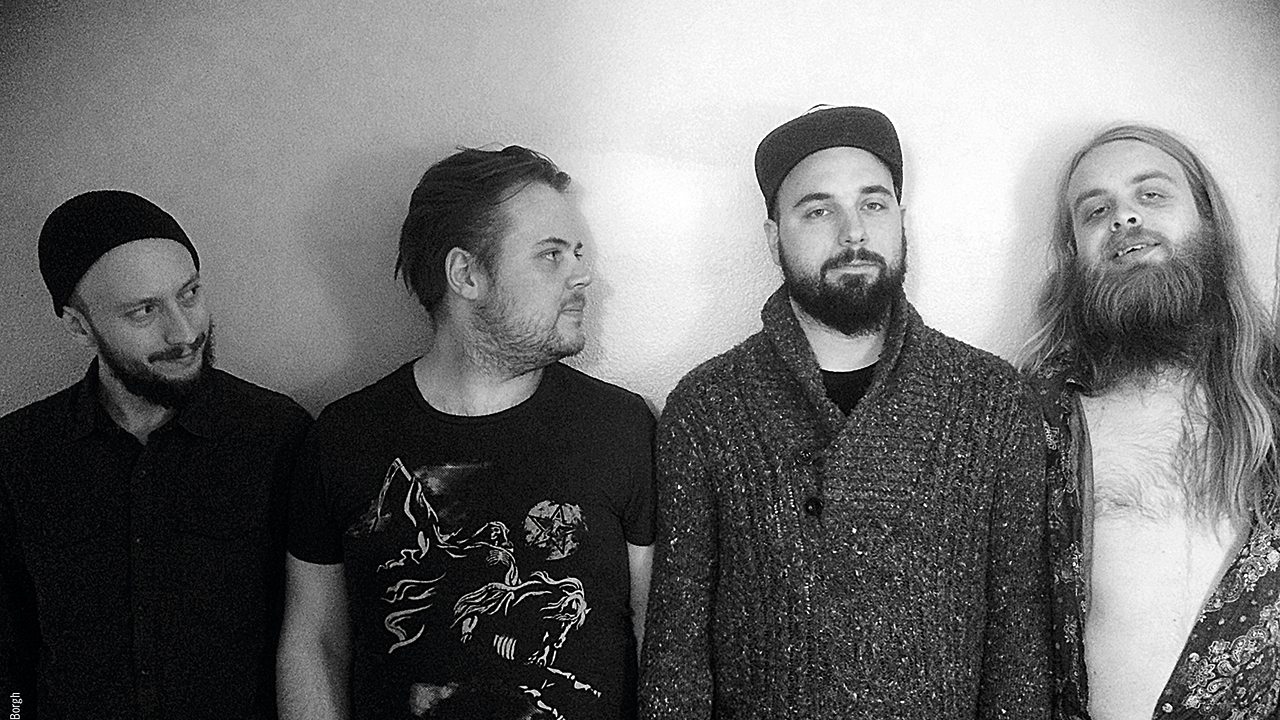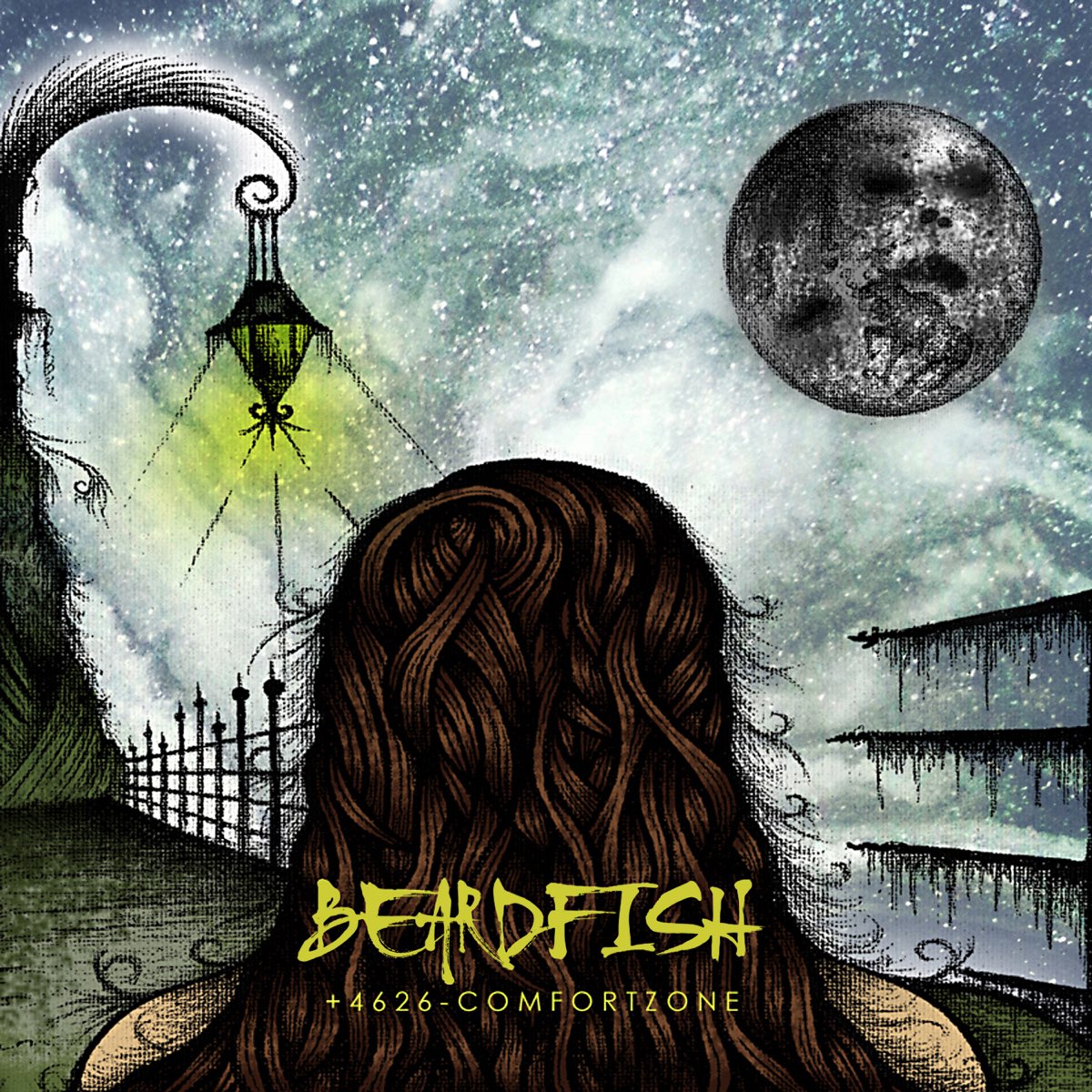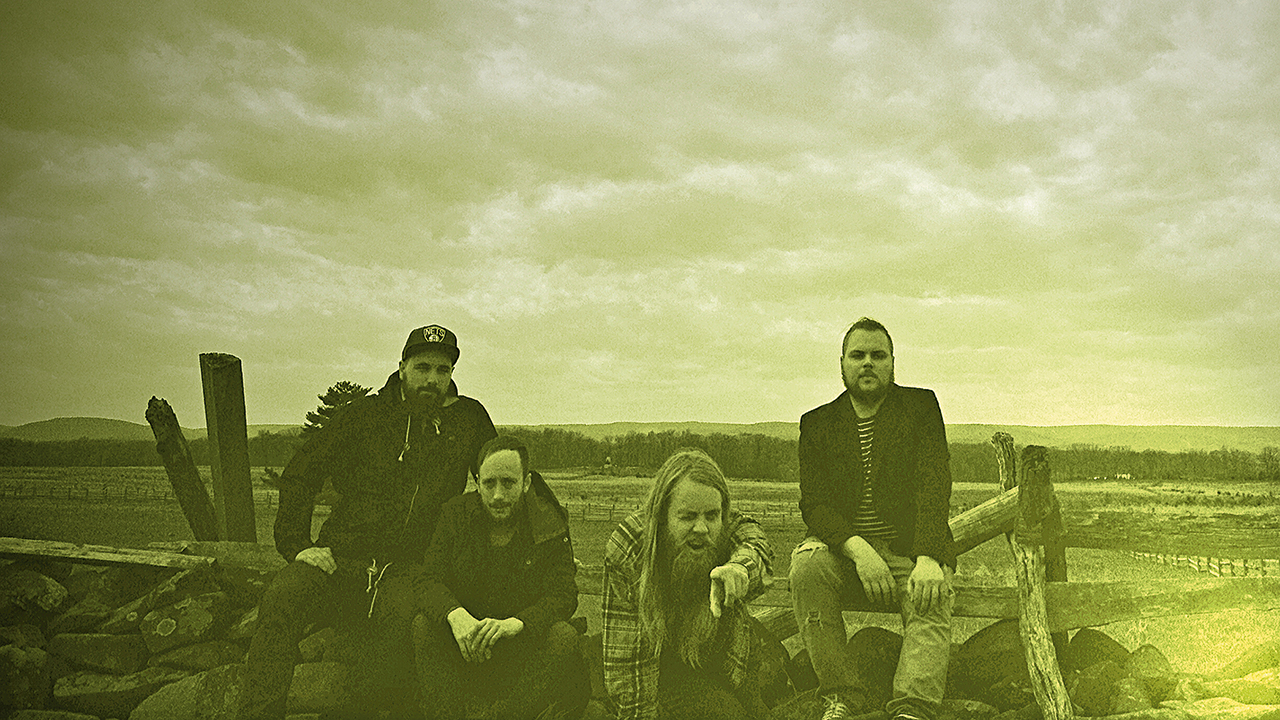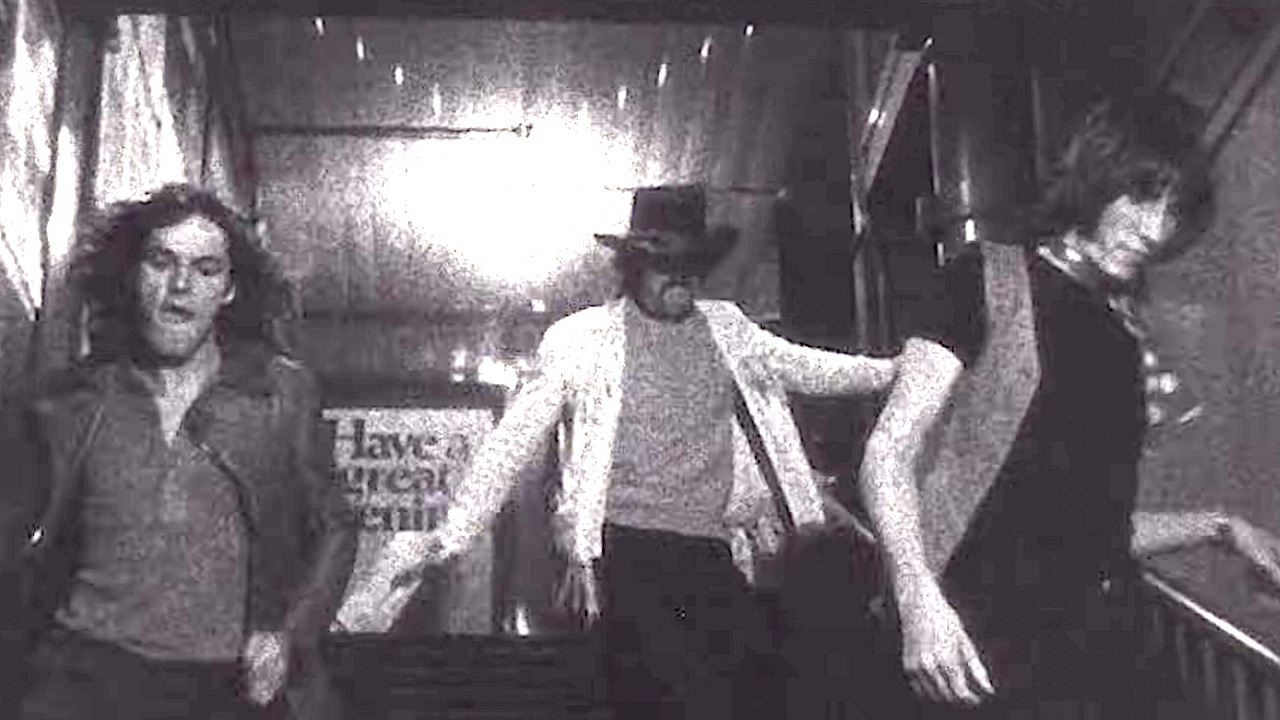“I realised quite early that this album would deal a lot with growing up." Beardfish's 2015 album +4626-COMFORTZONE would also be their last until they reformed last year
Released in 2015, +4626-COMFORTZONE was Swedish prog rockers Beardfish's eighth studio album. It also would also be the band's last for nine years...

For all its lofty conceptual conceits and bizarre flights of fancy, progressive rock is often at its most affecting when it retains a slender but unmistakable grip on reality. As much as we all enjoy tales of marauding robot armadillos and the occasional skip through Hindu scriptures, it’s arguably the humanity etched into the core of albums like The Dark Side Of The Moon and The Lamb Lies Down On Broadway that ensured those songs would resonate through the ages.
In musical terms, if one contemporary band intuitively encapsulates all the greatest things about prog eras past and present, it’s Beardfish. Rikard Sjöblom and his implausibly talented comrades have been amassing an extraordinary catalogue of diverse and frequently audacious music for the last 14 years, but they have remained something of a cult concern until now. The band’s new album, +4626-COMFORTZONE, simply oozes real-world melancholy, tapping into that rich vein of disquiet and yearning that once inspired Roger Waters, among others, to such great creative heights. Partly inspired by Sjöblom’s experiences growing up in the small city of Gävle on Sweden’s Baltic coast, it’s an album that deserves to propel its creators to a much higher level of acclaim and popularity, not least because many of its songs explore themes that are sure to strike a nerve.
“I realised quite early that this album would deal a lot with growing up and the mood and the vibe of our home town, which is kinda moody and dark,” Sjöblom tells Prog. “There is this mentality over here that you shouldn’t even try to be anything because you won’t be successful. It’s a small town and it’s still stuck with a small town mentality. There’s good stuff here too, of course, and for me, I had plenty of encouragement when I was younger. But this album is more about getting older. You can finally get into places where they serve alcohol and that’s where you discover the mentality of ‘You’ll never get anywhere!’ because people are drinking – probably too much! – and that’s when it creeps out.”

+4626-COMFORTZONE (46 is the dialling code for Sweden, 26 the local code for Gävle) is an album bursting with moments of exquisite musicality and wild invention, but its underlying theme seems to be one of acute frustration: at people’s idle defeatism, at the persistent nagging of existential uncertainty, and – on the wickedly acerbic Ode To The Rock’n’Roller – at the thankless task of being a jobbing musician.
The aforementioned song’s chief protagonist finds himself on stage, performing covers in some godawful tribute band. He has a sudden moment of furious revelation at the sheer mind-numbing banality of his semi-artistic life before launching into an impromptu burst of Stravinsky, much to the horror of a booze-addled audience who really just want chicken in a basket, as much beer as possible and a few familiar tunes to nod along to. Like a lot of Beardfish’s finest songs, it employs refined, bone-dry humour that tickles and torments in equal measure. It also seems to suggest that Sjöblom has a somewhat vexed relationship with his chosen profession.
“That song is about freaking out when you realise that you can make more money and make a living from playing covers than from playing your own songs,” he explains. “That’s a reality for a lot of musicians I know, and around the world too. It’s depressing. In the song, people have gone to that place to drink, not to listen. They’re at the watering hole and they just want to hear something they recognise. But I honestly thought that song was gonna be more humorous, because that was the intention… but it became more serious in the end. I couldn’t help it!”
The slow death – or, if you prefer, shambolic evolution – of the record industry over the last decade may not have had a particularly detrimental effect on the world of prog, which continues to flourish away from the mainstream, but Sjöblom’s feelings of occupational ennui still make perfect sense as a career in music becomes a greater challenge with every passing year.
Sign up below to get the latest from Prog, plus exclusive special offers, direct to your inbox!
“For me, I don’t think there will ever be another Stevie Wonder or Bruce Springsteen or U2,” he muses. “The way the industry works right now, I don’t think it’s gonna be allowed, to be that big. There’ll never be new superstars that have artistic integrity and that aren’t just the product of a record label or a TV channel. Today it’s all based around the same loop of another new kid singing songs that other people have written and everyone thinks they’re great for 10 minutes, and then they’re gone and you never see them again. I miss the old way, when a label would invest in an artist and give them five albums to come up with something and if it worked, great! In those days, record label executives were willing to try things and see if people liked them.”

A willingness to try new things and to hell with the consequences? That sounds a lot like a Beardfish manifesto, and one that has served the band well over the years. But even in the prog scene, where open-mindedness should reign supreme but is routinely thwarted by the infuriatingly conservative attitudes of a vocal minority, a penchant for taking risks is not always appreciated. Beardfish experienced this themselves when they released their last album, The Void. A typically daring and exploratory work, it took the Swedes a little further into heavy metal territory than many diehard fans were expecting.
“Yeah, it sort of started before the album came out,” Sjöblom recalls with a wry chuckle. “We mentioned somewhere that we had a couple of songs that were a bit more towards the metal side of things and as soon as we released Voluntary Slavery as the main song for the album, the reaction was, ‘Oh no! My favourite band has turned metal!’ and, ‘What have they done?’ [Laughs] A few people just dismissed the whole record and didn’t listen past the first few tracks. I don’t blame them, because it’s difficult to get past those elements if you’re not into them. But I’m sure the people who enjoyed that side of us in the past thought it was great, so it goes both ways.”
The good news for recalcitrant proggers with a metallic blind spot is that +4626-COMFORTZONE sees Beardfish back in the many-splendoured prog territory of earlier albums like Destined Solitaire and The Sane Day, albeit with occasional tips of the hat to heavier hues… including the outrageous theft of the opening bass riff from Motörhead’s immortal Ace Of Spades at the beginning of Daughter Whore. It’s a typically mischievous moment from a band who are never so wrapped up in their own musicianly pursuits that they miss the chance to raise a smile.
“Yeah, that was kinda fun!” grins the frontman. “Robert [Hansen, bassist] wasn’t supposed to play it that way, but he came up with it in the middle of the recording. It turned out nice in the end, I think. He’s really chugging away! [Laughs] People can take music too seriously sometimes, but the people who come from listening to Zappa or Hatfield And The North, they’re probably going to get our sense of humour pretty quick. Even if you listen to Genesis… they had a lot of humour too, but I think that’s lost on a lot of people.”
When the laughter subsides, of course, the new Beardfish album remains a poignant and sobering piece of work. From the wistful subtleties of the three-part The One Inside through to the acid-tongued satire of Ode To The Rock’n’Roller, these songs strike a potent balance between the cleverness and intricacy of the music itself and the elegant but spiky profundities of Sjöblom’s lyrics.
The title track is the greatest of the lot. A flawless nine-minute epic with a recurring melody that could melt the iciest of hearts, it tells the tale of a man on his deathbed, wrestling with the multiple paradoxes conjured by such a meek lowering of the mortal curtains. As a song, it reinforces what a truly extraordinary band Beardfish have become, while the lyrics proclaim Sjöblom’s unfussy brilliance as a songwriter of great sensitivity and distinction. It looks like the tribute band circuit will have to muddle along without him for a while yet.
“Sometimes I get an urge to write about dark stuff because everyone can have depressing thoughts and get stuck in that type of mindset,” he states. “It’s a circle that goes round and round. This guy is singing, ‘I’ve always longed for this day,’ and yet there’s always the struggle… ‘Now that I’m here, I can’t help fighting it,’ you know? Depressing stuff, isn’t it? [Laughs]
“I’ve always enjoyed those kind of lyrics, and those kind of movies too. I like dark stuff, so I guess that’s my comfort zone. In a way, I’m speaking to myself when I’m writing, struggling with life and trying to write to help me find a way out. And then, in the words of Hatfield And The North, I can share it.”
This article originally appeared in issue 53 of Prog Magazine.

Dom Lawson has been writing for Metal Hammer and Prog for over 14 years and is extremely fond of heavy metal, progressive rock, coffee and snooker. He also contributes to The Guardian, Classic Rock, Bravewords and Blabbermouth and has previously written for Kerrang! magazine in the mid-2000s.
